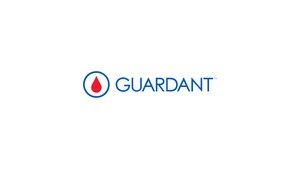Prospective, independent study demonstrates the utility of Guardant360 for guiding therapy selection in advanced Non-Small-Cell Lung Cancer
REDWOOD CITY, Calif., Sept. 9, 2016 /PRNewswire/ -- A new prospective study of Guardant360® was published in Clinical Cancer Research, adding to the growing body of evidence demonstrating the clinical utility of the leading comprehensive liquid biopsy. The study, from researchers at the Perelman School of Medicine at the University of Pennsylvania, assessed the utility of testing advanced non-small lung cancer (NSCLC) patients with Guardant360 to find genomic alterations associated with responses to targeted therapies. It found that Guardant360 can improve patient management and that tumor-tissue sequencing was not performed for more than half the patients enrolled in the study.
"The results show that Guardant360 can detect somatic genomic alterations in advanced lung cancer that can be targeted with effective therapies," said Helmy Eltoukhy, Guardant Health's CEO. "In many cases, our blood test was the only opportunity for doctors to learn valuable, treatment-relevant, genomic information about the patients enrolled in this study."
The researchers looked at 102 consecutive patients with NSCLC whose doctors ordered Guardant360 between February 2015 and March 2016.
In these patients, Guardant360 detected somatic alterations associated with response to an on-label, FDA-approved therapy in 31% of patients. It detected alterations associated with response to an FDA-approved therapy used off label in 55% of patients and alterations involved in active clinical trials in 70% of patients.
Investigators also sought to analyze tumor tissue from every patient enrolled in the study to evaluate the concordance between Guardant360 and traditional tissue DNA sequencing methods. But in more than half of the patients, tissue sequencing failed, either because tissue could not be obtained through a biopsy, or because the quantity or quality of the tissue obtained was insufficient for sequencing.
"Thus, for over half our patients, ctDNA sequencing was the only option for detection of therapeutically targetable variants," the authors of the study wrote.
This is the second study published this month demonstrating Guardant360's clinical utility in NSCLC. In both studies, tissue sequencing was not possible for more than half the enrolled patients either because the amount or quality of tissue was insufficient for sequencing, or tissue could not be obtained.
Guardant360 is the first and most validated comprehensive liquid biopsy available commercially and it is the market leading liquid biopsy. It provides comprehensive analysis of all major classes of somatic tumor alterations. The test interrogates 70 cancer genes from a simple blood draw, with near-perfect specificity and high sensitivity. Using Guardant Health's proprietary Digital Sequencing technology, Guardant360 can detect circulating-tumor DNA (ctDNA) at mutant allele fractions (MAF) as low as 0.1%.
About Guardant Health
Guardant Health, headquartered in Redwood City, Calif., is focused on developing breakthrough diagnostics that can transform cancer from a silent killer into a manageable disease. Guardant Health was founded in 2012 by a team of serial entrepreneurs with expertise in next-generation sequencing, single-cell genomics, and cancer diagnostics. The company has raised more than $200 million from leading venture capital firms and its first product, Guardant360, came to market in 2014. The team is committed to positively and significantly impacting patient health through technology that addresses long-standing unmet needs in oncology.
SOURCE Guardant Health
Related Links
WANT YOUR COMPANY'S NEWS FEATURED ON PRNEWSWIRE.COM?
Newsrooms &
Influencers
Digital Media
Outlets
Journalists
Opted In






Share this article